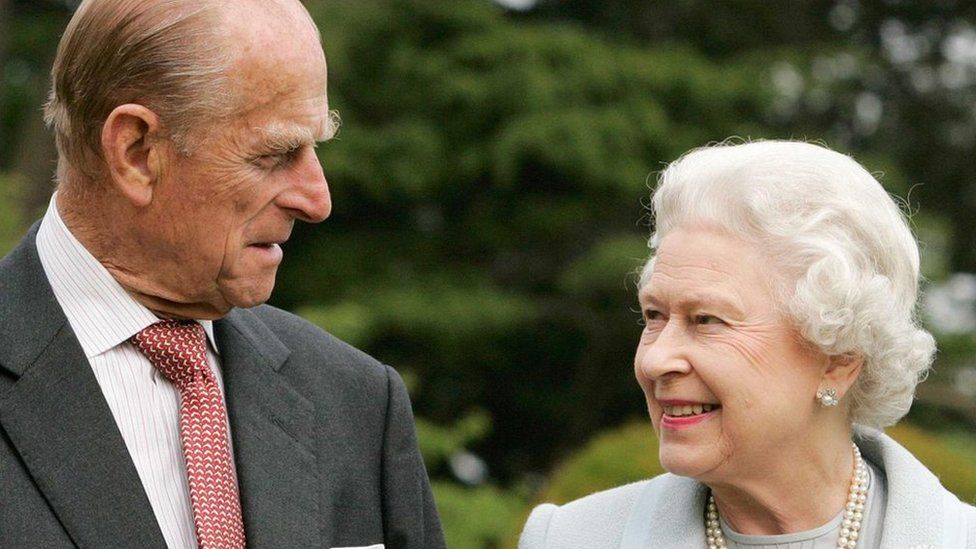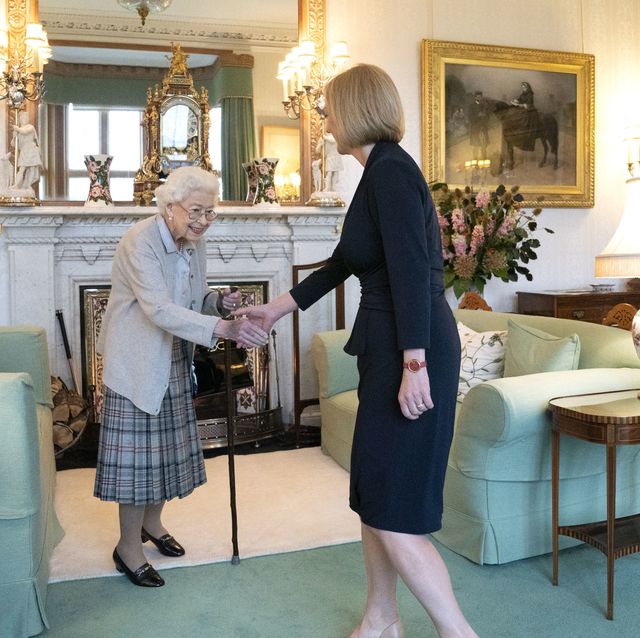Here Today, Gone Tomorrow, Rest in Peace
"When you're in your 90s, especially, anything can potentially take you.""She didn't look as robust as she may have maybe a few years ago. But remarkably, here's a woman still carrying on a significant schedule of overseeing her government.""I'm glad that whatever it was that took her, she was one who probably didn't suffer long and was able to die at home, surrounded by family.""Which is what everybody hopes to achieve."Dr.Samir Sinha, director of geriatrics Mount Sinai Hospital, Toronto"She has changed [a] bit since the pandemic and her recent mobility issues.""Maybe it's just dawning on people now that she's an old woman, but we didn't really think of her like that. We think of her as the queen."Robert Hardman, royal biographer
 |
| The Duke of Edinburgh was at the Queen's side for more than six decades
of reign, becoming the longest-serving consort in British history in
2009 Tim Graham/PA |
Gone. Certainly it was expected. The certainty was that her time was limited. In the past several years she had undergone a series of shocks. Psychological shocks have their deleterious impression on both mind and body. Yet she was resilient; her profession, born and bred, was that of a queen. And she was a queen like few others in our relatively modern era. She was the Queen of a vast imperialist empire. Not of her doing, but that of her predecessors. The Queen of the British Commonwealth of Nations.
According to actuaries, life expectancy in one of her 'colonies', the Dominion of Canada, is currently 82. Anyone who lives as long as age 90 can expect to live on average another six months. Queen Elizabeth II far outdid the most optimistic of longevities. Most commonly the fortunate die quickly of a vascular event like a heart attack or strike; they're the fortunate ones. At the other end are those who contract chronic and protracted illnesses like dementia, and in those circumstances death can take years to arrive.
Onlookers were struck when published photographs showed the queen receiving her new prime minister, Liz Truss a mere two days before the event of her unexpected death. Though she was using a cane, her smile lit up the photograph, just as much as her frail, shrunken figure fixed the eye on an-end-of-life example of the vagaries of hanging in and hanging on. Keen observers recognized in the photograph a "blue hand", leading to speculation of the presence of peripheral vascular disease, problematical blood circulation that could progress to narrowing and blockages in blood vessels.
Queen Elizabeth II's health was slowly spirallng downward in recent years. Buckingham Palace reported her passing to have been peaceful. No statement was issued giving any specific cause of death. In April of 2021 when Prince Philip died in Windsor Castle, age 99, cause of death was officially recorded as "old-age". He too died peacefully.
His peaceful death, however, after 74 years of marriage to his queen, would have been devastating for her. He was, as she described him, her "constant strength and guide" and with his passing a void appeared that nothing and no one could hope to fill. In his absence a series of health problems developed for the queen. Although she was fully vaccinated, in February she tested positive for COVID. Initially experiencing mild cold-like symptoms she described the virus as leaving her feeling "very tired and exhausted".
She also suffered vague "episodic mobility issues" that kept her from a number of public engagements including Platinum Jubilee celebrations and the May State Opening of the British Parliament; only the third time in her 70-year reign she missed the "main ceremonial event of the parliamentary year". She stayed overnight in hospital for "preliminary investigations" in October, cancelling a royal trip to Northern Ireland.
Her distress over her oldest son-and-heir's second son's decision to leave the Royal Family to strike out on his own in the United States as a celebrity figure with his wife, estranging them from the family when both brought public attention and in some quarters admiration, in charging discrimination levelled at the Duke of Sussex's wife and their biracial child cannot have had much of a helpful effect on Queen Elizabeth. Nor the revelations of her favourite son Prince Andrew's sordid indiscretions with underage women.
 |
"She looked frail. She looked like she lost weight. She looked like her mobility was more impaired. She's not the same person as before. She's becoming frail.""[eighty percent of people who reach age 90 have some degree of frailty], and when you have frailty, you have these inadequate responses to stressors, or noxa, in which a minor change can generate a huge change in your health -- like death.""Sometimes people, after having a fall, pass away. A person has frailty, is managing well at home but has weight loss, weakness, balance issue, and they fall and have a hip fracture.""We do a beautiful surgery, we replace the hip, and, after two, three days they pass away.""It's a vicious circle -- you have low energy, so you move less.""[But the queen didn't have signs of cognitive impairment. I think that's why she was able to reach 96 -- she had good genes [the Queen Mother lived to 101] but also she was cognitively healthy."Dr. Manuel Montero-Odasso, geriatrician specializing in mobility and brain health
Labels: Queen Elizabeth II

0 Comments:
Post a Comment
<< Home